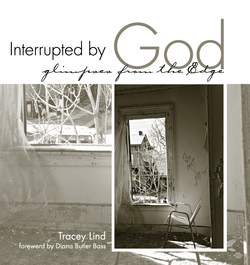Читать книгу Interrupted by God - Tracey Lind - Страница 7
На сайте Литреса книга снята с продажи.
Foreword
ОглавлениеIn his book, Ministry and Imagination, the late theologian Urban Holmes suggested that the spiritual imagination is an act of pilgrimage whereby the hungry soul goes “outside the city” to find God’s presence. Leaving the city in order to see God is an ancient Christian practice, one that can be traced back to the fourth century. As the faith became increasingly conflated with imperial Roman values, faithful believers who could still imagine a life of intentional spirituality made their way to the countryside and desert where they hoped to better envision and practice a way of life in God.
Today, “the city” embodies the system of what is, the religious patterns and institutions with which contemporary Americans live—the accepted way of doing things, approved faith narratives, and proven programs of piety. Although such ways of being may be popular or pragmatic, much of what currently passes for Christianity has lost the power of imagination. It cannot connect people to God’s transcendent beauty, embody Christ’s love and justice, or open the heart to peace and wholeness. For the vast numbers of Americans, the Christian way of life differs little from a middle-class, white, suburban, and politically conservative way of life. Giving into the power of that “city” has flattened Christian identity, theology, and spirituality into narrow—and often materialistic or exclusionary—categories. Yet, amid this loss of imagination—or perhaps because of it—a deep spiritual longing pulls the hearts of many seekers and believers who dream that there exists a clearer vision of God and a healing way of life. It may well be that, in these days, Christians again need the ancient wisdom of imagination and pilgrimage. Only by traveling beyond the contemporary city to the edges of society can pilgrims finally see the deeper meanings of life experienced and promised in the good news of Jesus Christ.
Tracey Lind’s book is a series of suggestive and episodic meditations on life at edge of the contemporary city, visual images captured in her own photographs, from which she unpacks spiritual and theological meaning. Unlike the ancient Christians who fled their cities to find faith, Tracey Lind stays in the geographical city and discovers God in the homeless, prostitutes, immigrants, and even in graffiti, rundown buildings, and urban garbage. Through the camera lens, interwoven with the insights of spiritual imagination, she moves beyond what St. Augustine called the “City of Man” to the often-elusive City of God. In this grace-filled pilgrimage, she invites others on a journey to see God’s city with her—opening a compassionate and compelling vision of Christian faith that is transcendent and welcoming to all.
The good news of Interrupted by God is that seekers and believers need not imitate their ancient ancestors and flee the geographical city in order to see God and practice faith. And unlike her liberal Protestant forebears, Lind does not envision a God who is indistinguishable from the world and the secular social order. Thus, the spiritually hungry need neither completely forsake nor fully embrace the city. In these pages, God emerges as a God who is both in the world but not of it. Spiritual wholeness—with all its creativity, passion, and imagination—is a pilgrimage of seeing and living into this truth.
In a final flourish of paradox, Lind confesses to being an “evangelical universalist” as she powerfully reclaims a distinctive and loving way of life in and through Jesus Christ. In doing so, she joins her voice with the voices of others who are beginning to proclaim that a new way of being Christian is arising, a way that finds God’s truth in the shadowed edges of light beyond the borders of the city. Lind testifies that God, indeed, is alive—a being of infinite personal, transforming, and challenging love who can be found everywhere and may be known through the intentional exercise of spiritual imagination. Sometimes the most remarkable pilgrimages are simply walking outside the door of one’s own house and seeing the world through the eyes of God’s spirit.
Diana Butler Bass
Alexandria, Virginia
Author of Strength for the Journey: A Pilgrimage of Faith in Community and Broken We Kneel: Reflections on Faith and Citizenship
